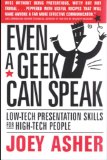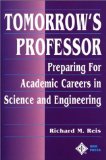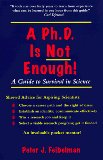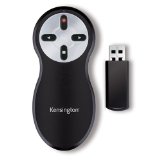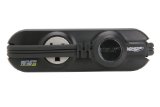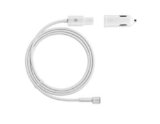Jump to:
- Timing: When to apply.
- Books and reading.
- Your application materials.
- Who's hiring: Where to apply.
- A good academic job talk.
- Interviewing.
- Negotiating and start-up packages.
- Useful gadgets and software.
- Nuggets of general advice.
- External resources.
Related pages:
Timing: When to apply
The entire process takes about a year from start to finish. Your first chance to fail is applying too late.- Submit your applications early in the fall (October/November) of the year prior to which you want to begin employment. Piles of new applications are often sorted during committee meetings. Early on, there are fewer applications, so early applications get a little more attention.
- The middle of January is when most schools stop accepting applications, but nearly all of my applications submitted near the deadline bounced. Even so, keep submitting to any position you find through February, particularly if someone there recommends you apply. (I applied for the position I took in early February.)
- You will probably hear back with invitations for interviews in January and February, but sometimes even March and April.
-
You'll want to draft your research statement, teaching statement and
curriculum vitæ (CV) the summer before your search.
For reference, I archived copies of my materials at the end of my job search:
- Get your letter writers primed as early as possible. You'll need at most six letter writers, but no less than three. You'll want to ask them at least a month in advance, and forward them copies of your CV, research statement and teaching statement. Keep track of the schools you've applied to with instructions for letter-writers on a web site. Email them each time you apply to a school and update it.
- Interviews seem to run from late February through early May, with a spike in March.
- My guess is that the bulk of the offers come in April.
- Some years, your field will be in high demand, and in others, no one will be looking. Have a backup plan (postdoc, industrial lab, start-up) to weather a bad year or two for your field. (I weathered a rough year for my field doing start-ups. It paid the bills, I had a lot of fun, and I think this had a net-positive impact on my candidacy. I had to make it crystal clear, however, that I would completely unwind myself from these commitments upon taking a professorship.)
Books and reading
An academic job search is somewhat like a tightly choreographed ritual dance between candidates and schools. I highly recommend doing some reading on this ritual before you embark on the process. The following books helped me the most.
-
Even a Geek Can Speak
. My first job talk went over like a turd in the sink. I read this in an afternoon and then reworked the presentation; my subsequent talks nailed it. It covers everything from audience to message to slides to minimizing pre-talk nerves.
-
Tomorrow's Professor
. I used this largely for figuring out how to write a cover letter, research statement and teaching statement. Several grad students have thanked me for pointing them to this book. My wife signed up for the Tomorrow's Professor listserv and forwarded me all the relevant posts.
-
A PhD Is Not Enough: A Guide To Survival In Science
details the grad-student-to-junior-faculty transformation. With respect to the job search, it covers aspects like how to present yourself in writing, and how to present yourself while speaking. Several grad students have told me they wish they had read this much sooner in their academic careers.
- My reading list has a section for near-terminal graduate students.
Your application materials
You'll find that Tomorrow's Professor- Create a simple, elegant and straightforward professional web site with your job materials and publications.
- Remove unflattering photos and anything which could identify your views on politics, religion, etc. from your web site, facebook page, etc.
- Put a high-quality, professional-but-not-cheesy-looking photograph of yourself on your site. (Try black-and-white or sepia tone filters.) Don't be surprised when this photo shows up on posters.
-
According to Google
analytics, visitors coming from academic
institutions had the following page-view distribution during the period
of my job search:
- Main site: 69%
- CV: 18%
- Research statement: 10%
- Teaching statement: 3%
- Post your job materials in HTML in addition to PDF. (Well over 99% of all the people that looked at my materials looked at the HTML version of my job materials.) PDF is great for printing, but it's cumbersome for online viewing. For those using LaTeX, try HEVEA.
- Keep updating your materials throughout your search and post them on your web site. Many of your interviewers will go to your site minutes before meeting you and download the latest version.
- This wasn't a problem for me, but if I were not in the top hits for my name on Google, I would consider taking out AdWords on my name.
- Many schools will ask for your top three to five publications. If you don't have at least three good publications, you may want to consider a postdoc.
- List acceptance rate information (number submitted, number accepted, percent accepted, authorship ranking) on your publications in your CV. This gives people outside your field (like the search chair) a crude metric to judge the worth of your publications. (Warning: Someone I trust said listing this information can make a candidate look like a bean counter that's missing the forest for the trees: the point of academia is not to publish papers; the point is impact.)
- Take the time (at least one hour) to personalize the content of each cover letter. (I tried to work in the names of the faculty members at each school qualified to judge my application.)
- Bold face faculty member names in the cover letter. Hiring packets are skimmed very quickly when they come in, so this boosts the chances of your packet being routed to the appropriate person.
- Keep your cover letter brief (one or two paragraphs at most) and free of extraneous information.
- Have people outside your area read over your materials. Politely ask a previous search chair at your school to read them.
Who's hiring: Where to apply
- cra.org has the best listing for academic jobs related to computing.
- The Chronicle of Higher Education has a listing that tends to be for more teaching-oriented positions.
- Ask your advisor to ask who's hiring.
- Go to a major conference in your field before November (at the latest) of the year of your search and ask who's hiring.
- Post your job materials (research statement, teaching statement, CV) on your web site as soon as possible. Several people in my field looking to download my papers found out I was looking for a job and asked me to apply to their schools. I ended up with interviews at all of them.
- Schools seem to interview about seven candidates on average for each position. I got an interview at just under half the schools I applied to. Assume you're an average candidate, decide on the probability you'd like to get a job offer and use these odds to solve for how many schools you have to apply to. Double that number. Getting one offer is good, but a second offer gives you leverage when negotiating.
- Don't rule out a school because you don't know much about it or because you presume it wouldn't be very good. (After my job trek, I realized that there are a lot of great schools I never knew about. I've never put much stock in the U.S. News rankings before, but they seemed entirely out of line after my job search.)
A good academic job talk
One department chair told me, "Your packet got you the interview. Your job talk gets you the job." I found the job talk set the tone for the entire interview. Unfortunately, you will screw it up the first time you give it.
Your job talk is unlike any talk you have given so far:- The audience must understand it.
- The audience must be excited by it.
- The audience must like you enough to want you to hang around for at least six years afterward.
- My final job talk is available as a reference.
- Prepare your job materials and your job talk for a general audience. (For computer science: Systems, graphics, databases, HCI, etc.)
- Attend other job talks and take notes: what worked; what didn't?
- Rehearse your job talk ten times before you give it the first time. Rehearse it twice before each subsequent delivery.
-
Bring your own
high-quality wireless presentation remote
so that you can be mobile and animated during your presentation.
- Defend the department's field by starting very general. What are the pressing problems of the department's field? What are the long-term trends? Spend as much as 10 minutes on general, easily accessible material. Use charts, statistics, anecdotes, quotes, video clips and animations. Demonstrate to those outside your field that you at least understand the pressing issues and that your research will be relevant. (I chose to highlight the need for verification, security and parallelism.)
- Defend your field: How does your sub-field address the important issues?
- Defend your work: How has your work specifically impacted those issues?
- In deciding what the important issues facing your field are, you may want to start with your work and back-solve for what the "most" important issues are.
- Every field in science and engineering has camps at two poles: theory and experimentation, so strike a balance. Make it clear you understand the theory and do some sexy math, but don't bludgeon the audience. Make it clear you can be applied and empirical with a few charts and benchmarks. (Once I got to my research---halfway through my talk--I toggled back and forth between little bites of theory and charts of the empirical ramifications.)
- You may have to cover lots of background material that you wouldn't normally cover. That's fine--especially when you consider that your talk is also used to measure your teaching ability. (I worried that I had scaled down my material to the point of looking obvious or unsophisticated, and yet many people outside my field told me my talk stretched their technical limits. Each time I gave the talk, I made the technical portions simpler, and each time, I still got that comment. It's difficult to remember that even the mundane concepts we use in our sub-fields every day once took a semester or more to master.)
- Don't cover all of your work in detail. Only cover one slice of your most important easy-to-understand work in detail.
- Expect people to ask questions during your talk.
- During one-on-one interviews, ask people for blunt honesty and feedback on your talk.
- A little polite self-deprecating humor helps sell you as a person.
- Ask your local contacts how to spin your talk to exploit the department's poles.
Interviewing
Don't let the one-on-one interviews be one way. Ask people to explain their research to you. Engage them as much as possible. I really enjoyed getting to hear more about other fields after four years of Ph.D. school, during which I'd become ever more narrowly focused on my own.
If you're at a loss for questions, try these:
- Why did you choose this school during your job search?
- Where do you see this department/school/college in 5 years?
- What's the teaching load like?
- What's the tenure process like?
- Which courses need teaching?
- What kind of start-up package do you think I should negotiate? (Ask this of junior faculty.)
- What's the overhead on grants? (This question tends to impress deans.)
- How much does it cost to fund a Ph.D. student for 12 months?
You'll want all of these questions answered anyway.
You'll want to be able to respond to these:
- I can't/didn't make your talk; can you give me a quick overview of your research?
- Do you have a teaching preference?
- Where else are you interviewing? (Answer honestly. Folks are just curious.)
- Where do you see your research going?
- Say something to prove to me that your research/field is going to matter.
- Do you have any more questions?
- Do you think you could apply your research to X? (Yes, you can!)
- Do you think you could apply X to your research? (Yes, you can!)
Negotiating and start-up packages
Don't shy away from negotiating once you have an offer. But, keep in mind that your goal is not to milk the school for everything you can get. Your goal is to enable a plan that bootstraps your research career to the point where you can acquire external grant funding and then get tenure.- Don't negotiate salary, and never name a number. Just say you'll accept any "competitive" offer if asked. If a school doesn't offer a competitive salary, consider what this says about the culture of the administration. Exception: If you've already received an offer you deem competitive, feel free to reveal it, and they will probably want to beat it.
- The Chronicle of Higher Education has a salary survey. Bear in mind that the average salary for a given field can be much higher or lower than what the survey says, since the survey lumps the lower-paying fields with higher-paying fields.
- Do negotiate your start-up funds, but don't argue for an amount.
Argue for a concrete plan of action for the amount you request.
You'll need to ask about overhead and the annual cost of a grad
student to calculate the amount for the plan. Use a spreadsheet.
Think of it as a mini grant proposal.
Consider grad students, equipment, travel and summer salary support.
I lamented the dismal state of grant acceptance rates to argue why I needed so much initial support. I said it would probably take me two years to get grant funding in the worst case. (It took me exactly two years.) Aim high, and provide a diplomatic out for them with "If you think this plan is too aggressive, let me know, and I'll work on scaling it back."
- Ask for a first-semester break on teaching so you can move, unpack, bring your research up to speed and apply for grants.
Useful gadgets and software
Some gadgets and software made the job search process smoother and more productive.- Store your presentation on a USB drive in every conceivable format: PPT, Keynote, PDF, PS, HTML and Flash. Also keep these in a hidden directory on your personal web site. Don't leave yourself at the mercy of your laptop or the TSA.
-
One thing I noticed from watching other job talks (and from reading
Even a Geek Can Speak
) is that presenters tethered to their laptops or podiums during a presentation come across as less engaging. A good presentation remote frees you up to move about the room, touch the screen and express yourself. (A bad presentation remote will inexplicably exit your slide-show or jump to the end (or beginning) of your talk because you pressed the wrong button.) I strongly recommend the Kensington
: This unassuming remote has actually won awards from IDSA (and deservedly so). It's compact and ergonomic. It runs on easy-to-find AAA batteries. It has a laser pointer. And, it's just too simple to screw up while you're in front of an audience. I bring it to every conference I attend, and invariably, I make friends by lending it out to presenters that have forgotten their remotes.
- If interviewing in a foreign country, don't forget to bring a universal power converter. If you do forget it, ask the hotel front desk if you can borrow one.
-
Buy a power splitter for airports.
The time you spend in airports while on the interview circuit may be measured in days, especially
with foreign interviews and long lay-overs.
Most of the available power outlets in airports seem to be taken as
soon as they free up.
I got frustrated with not being able to work in airports, so I bought an inexpensive, lightweight, compact travel power splitter
: This made my time in airports a lot more productive.
- I spent a lot of time tweaking my slides on planes, so the Apple airplane power adapter was handy: Look underneath your seat the next time you're on a plane; you'll probably find a funky-looking power plug that you can fit this into. This was invaluable on international flights, and it worked on about half of my domestic flights. I think other laptop manufacturers offer these now too.
- My wife convinced me that my job talk was the appropriate time
to dump LaTeX and Beamer in favor of a "real" presentation tool. I switched to
Apple iWork
's Keynote. What surprised me was that my slide-show took less time to create than with LaTeX, and I had a lot of fun putting together animations for my research. I inserted video of expensive rockets exploding to showcase the cost of software bugs. I think the dynamism in my slides helped sell my research program. If you want to make Keynote look like a fancier version of Beamer, you can install the iconic Computer Modern fonts for use with math.
- Finally, I'd recommend having a GPS-enabled smartphone if you'll be navigating in new cities. While you're in each city, go out and explore with impunity. Ask yourself: "Could I actually live here?"
Nuggets of general advice
Many of these nuggets were given to me and either worked or seemed sensible, so I'm forwarding them on.- Actively involve your significant other in every step so that they feel like they have ownership of the final decision.
- Learn how to pick a wine for dinner; if you're caught in a pinch, ask for a house recommendation.
- When people ask your food preference, they're really asking if you have any food aversions. You'd love to try any local favorites.
- Dress like a professor, not an investment banker, or worse, a grad student. For guys: No black business suits. No pin-stripes. No T-shirts. Try: Plaid, tweed, corduroy, or camel hair coats. Shirt with collar underneath. Tie if and only if tucked under a sweater or a vest. And, don't forget to wear a belt. And, no white socks.
- If interviewing across an ocean, see if you can arrive two full days prior to your interview. (My first interview began less than 24 hours after I arrived in Germany, and I was jet-lagged out of my mind during my entire visit. My brain felt like porridge during technical exchanges, and I couldn't even articulate the details of papers where I was the solo author.)
- If you apply to a school outside of the country, clear up visa and passport issues in the Fall, so there's no risk of a bureaucratic delay tanking your interview. Check your passport's expiration date now, and make sure you're up-to-date on entry and re-entry requirements.
- Rest up. Interviews and travel are physically, mentally and emotionally exhausting. (My immune system quit toward the end of my interviewing schedule. I was very ill for two weeks straight, and I ended up canceling my two remaining interviews.)
- The day of or morning after your interview, email everyone you spoke with a short, personalized thank you note.
- Thank secretaries/administrative assistants.
- Check the weather before you pack.
- Don't completely overlook industry. (From a tenured professor that had an offer from Google in 2000.)
- Interview at a throw-away school first to test out your job talk and build up canned responses. (I really under-performed at my first interview, and I did it at a place I respected. Oops.) The next interview will always be better than your last.
- If the school sets you up in a roundtable/firing squad, take command and start by asking for everyone's name and elevator pitch. Try hard to ask a question or make a positive comment after each person speaks. (This was very difficult for me because I'm a far more reflective thinker than a real-time thinker, but I was able to respond to all but two people among the seventy or so I met in roundtables.)
- Have your "Over the next five years, I see myself..." elevator pitch rehearsed and ready to fire. No more than 60 seconds. One or two sentences if possible.
- Be prepared for productivity to grind to a halt for two months during interview season. Don't be dissertating, defending, marrying or having babies.
- After or during your interview, make it very clear to the dean/director/chair that you really liked his/her school, and that you're looking forward to hearing from them.
External resources
- My reading list, which has a section for near-terminal graduate students.
- Dartmouth's resource for writing a CV.
- GradPsych's tips on writing teaching statement.
- Stephanie Weirich's resource page.
- John Regehr's job search advice.
- Tomorrow's Professor blog.
- Tomorrow's Professor listserv.
- The Chronicle of Higher Education.
